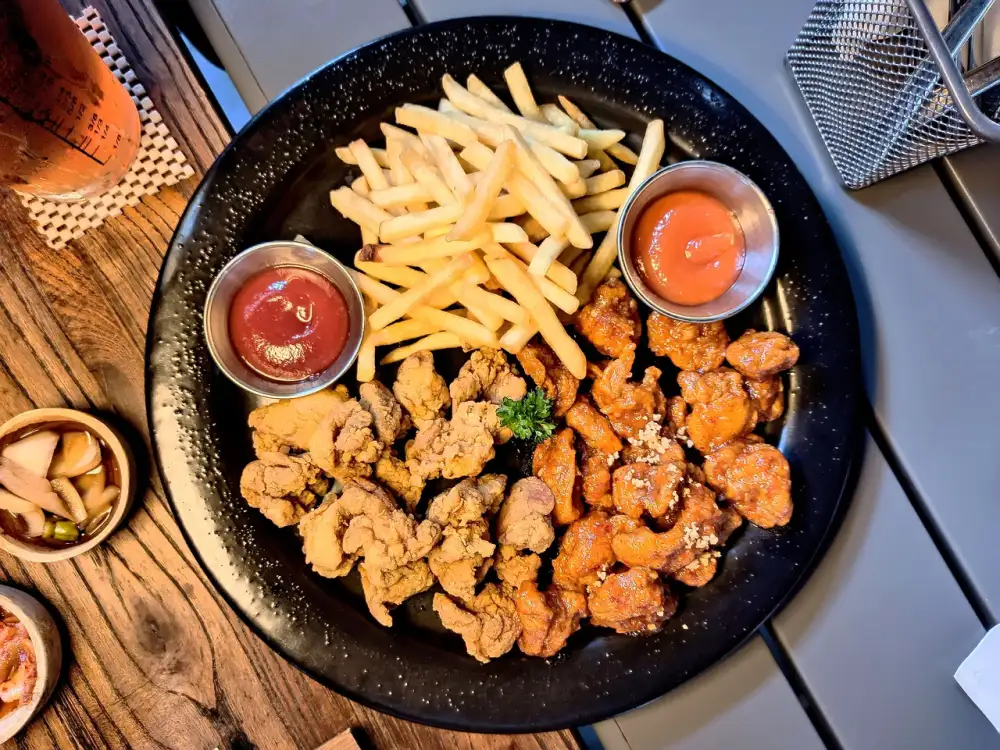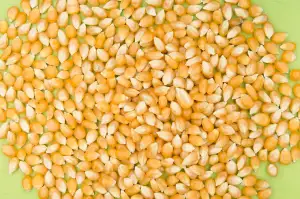Spice Up Your Cooking with Gochujang Sauce: A Fiery Korean Delight!

Gochujang sauce is a staple in Korean cuisine, known for its rich umami flavor and fiery kick. It is a thick, red chili paste made from fermented soybeans, glutinous rice, red chili powder, and salt. The sauce offers a unique balance of sweet, savory, and spicy flavors that can elevate any dish it is added to. Gochujang is versatile and can be used as a marinade, dipping sauce, or seasoning in various Korean dishes. Its popularity has spread beyond Korea, gaining recognition worldwide for its bold taste and culinary versatility.
Origin and History of Gochujang
Originating from Korea, Gochujang sauce has a rich history dating back to the 18th century. It was first created during the Joseon Dynasty and has since become a staple in Korean cuisine. Traditionally, Gochujang was made by fermenting soybeans, red chili powder, glutinous rice, and salt in earthenware pots under the sun for months. This fermentation process not only enhances the flavor but also contributes to its unique umami taste profile. Over time, Gochujang has evolved into different variations with regional differences in spiciness and sweetness levels.
Key Ingredients in Gochujang Sauce
Gochujang sauce is a staple in Korean cuisine, known for its rich umami flavor and fiery kick. The key ingredients in this versatile condiment include fermented soybeans, glutinous rice powder, red chili powder, and salt. These ingredients are mixed together and left to ferment for months to develop the complex flavors that make gochujang so unique. Some variations may also include sweeteners like sugar or honey to balance out the heat from the chili peppers. The combination of these ingredients creates a thick, spicy, and slightly sweet paste that adds depth and complexity to any dish it's added to.
Health Benefits of Gochujang
Gochujang sauce offers a range of health benefits due to its key ingredients. It contains red chili peppers, which are rich in capsaicin, known for its anti-inflammatory and metabolism-boosting properties. Fermented soybeans in gochujang provide probiotics that promote gut health and aid digestion. Garlic in the sauce is a potent antioxidant that supports the immune system. Additionally, studies suggest that gochujang may help lower cholesterol levels and reduce the risk of certain chronic diseases when consumed as part of a balanced diet.
Culinary Uses of Gochujang Sauce
Gochujang sauce is a versatile ingredient that can be used in various culinary applications. It adds a unique depth of flavor and a spicy kick to dishes, making it a popular choice in Korean cuisine. One common use is as a marinade for meats such as bulgogi (Korean BBQ) or dak galbi (spicy stir-fried chicken). It can also be mixed into stews like kimchi jjigae or tteokbokki for added heat and richness.
In addition to being used as a marinade or base for sauces, Gochujang can be incorporated into salad dressings, dipping sauces, and even soups to enhance the overall taste profile. Its umami-rich flavor pairs well with ingredients like garlic, soy sauce, and sesame oil, creating a harmonious balance of savory, sweet, and spicy notes in dishes.
For those looking to experiment with Gochujang sauce, it can also be used as a condiment on its own. Simply drizzle it over grilled vegetables, mix it into mayonnaise for a spicy aioli, or spread it on sandwiches for an extra punch of flavor. The possibilities are endless when it comes to incorporating this fiery Korean delight into your cooking repertoire.
Popular Recipes Featuring Gochujang
Gochujang is a versatile ingredient that can be used in various dishes to add depth and heat. One popular recipe is Gochujang Chicken, where chicken pieces are marinated in a mixture of gochujang, soy sauce, garlic, and honey before being grilled or baked to perfection. Another favorite is Gochujang Bibimbap, a traditional Korean rice bowl dish topped with sautéed vegetables, a fried egg, and a spicy gochujang sauce drizzled on top. Additionally, Gochujang Pork Belly Stir-Fry combines thinly sliced pork belly with vegetables and gochujang for a flavorful and spicy dish that pairs perfectly with steamed rice. These recipes showcase the versatility and deliciousness of gochujang in Korean cuisine.
Tips for Cooking with Gochujang
**Tips for Cooking with Gochujang:**
1. **Start Small:** Gochujang is potent, so begin with a small amount and adjust to taste. You can always add more but cannot take it away once it's in the dish.
2. **Balance Flavors:** Gochujang is spicy, sweet, and savory all at once. Balance its heat by adding sweetness (like honey or sugar) and acidity (like vinegar or citrus).
3. **Mix Well:** Gochujang can be thick and sticky, so ensure it's well mixed into your dish to evenly distribute its flavors.
4. **Cooking Temperatures:** Avoid cooking gochujang over high heat for extended periods as it can burn easily due to its sugar content.
5. **Storage:** Keep gochujang refrigerated after opening to maintain freshness and flavor. It has a long shelf life due to its fermentation process.
6. **Experiment:** Don't be afraid to get creative! Gochujang can elevate various dishes from stir-fries and marinades to soups and even cocktails.
By following these tips, you'll be able to incorporate the fiery kick of gochujang into your cooking while achieving a harmonious balance of flavors in your dishes.
Where to Buy Gochujang Sauce
Gochujang sauce has gained popularity worldwide, making it more accessible in various grocery stores and online platforms. You can find authentic Gochujang sauce in Korean supermarkets, Asian grocery stores, and specialty food stores. Many mainstream supermarkets also carry this versatile condiment in their international foods section or Asian aisle. Additionally, you can easily purchase Gochujang sauce from reputable online retailers like Amazon, where a wide range of brands and variations are available for purchase. Make sure to check the ingredients list to ensure you are getting a high-quality product without unnecessary additives or preservatives.
Published: 22. 04. 2024
Category: Recipes



